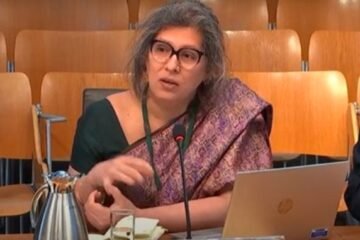Former Green MSP Andy Wightman has announced his plans to introduce a private member’s bill in the Scottish Parliament that would aim to transform the ownership and use of land in Scotland. The bill, which he hopes to publish by the end of the year, would propose a comprehensive package of measures to address the issues of land concentration, land speculation, land taxation, land use planning, and land rights.
Land concentration and inequality
Wightman, who is now an independent MSP for the Lothian region, has been a vocal advocate for land reform in Scotland for decades. He is the author of several books and reports on the topic, including Who Owns Scotland (1996) and The Poor Had No Lawyers (2015). He has also served as a specialist adviser to the UK Parliament’s Scottish Affairs Committee Inquiry on land reform 2014–2015.
According to Wightman, Scotland has one of the most unequal patterns of land ownership in the world, with 50% of the privately owned land owned by just 432 individuals or entities. He argues that this concentration of land power has negative impacts on the social, economic, and environmental well-being of the country, as well as on the democratic participation and accountability of the people.
Wightman’s bill would seek to challenge the dominance of large landowners by introducing a cap on the amount of land that any individual or entity can own, as well as a public interest test for any land transactions above a certain threshold. The bill would also aim to increase the transparency and accessibility of land ownership information, by creating a single public register of all land and property interests in Scotland, and by abolishing the feudal remnants of the Register of Sasines.
Land speculation and taxation
Another issue that Wightman’s bill would address is the problem of land speculation, which he says is driving up the price of land and housing, and preventing the development of affordable and sustainable communities. He claims that land speculators are exploiting the loopholes and subsidies in the current tax system, which favours landowners over land users, and encourages the hoarding and underuse of land.

Wightman’s bill would propose a radical overhaul of the land taxation system, by introducing a land value tax, which would tax the unimproved value of land, rather than the buildings or improvements on it. He says that this would shift the tax burden from productive to unproductive land use, and incentivise the efficient and equitable use of land. The bill would also seek to reform the council tax and business rates, which he says are outdated and regressive, and to abolish the exemptions and reliefs that benefit large landowners, such as agricultural and sporting rates.
Land use planning and rights
The third aspect of Wightman’s bill would focus on the reform of the land use planning system, which he says is currently dominated by the interests of developers and landowners, and fails to reflect the needs and aspirations of the wider public. He argues that the planning system should be more democratic and participatory, and should promote the sustainable and inclusive development of land and communities.
Wightman’s bill would propose a number of changes to the planning system, such as introducing a statutory right to plan for local communities, strengthening the role of the National Planning Framework and the Scottish Land Commission, and creating a new land agency to oversee the acquisition and disposal of public land. The bill would also aim to enhance the rights of land users, such as tenants, crofters, commoners, and communities, by extending the community right to buy, creating a new right to roam, and establishing a land rights commissioner.
A vision for the future
Wightman says that his bill is inspired by the vision of a Scotland where land is owned and used for the common good, rather than for private profit. He says that his bill is based on the principles of human rights, social justice, and environmental stewardship, and that it reflects the recommendations of various commissions and reports on land reform, such as the Land Reform Review Group, the Commission on Local Tax Reform, and the Scottish Land Commission.
Wightman acknowledges that his bill is ambitious and controversial, and that it will face opposition from the powerful vested interests that benefit from the status quo. He says that he is open to dialogue and debate with all stakeholders, and that he hopes to gain support from other MSPs and parties, as well as from the wider public. He says that he believes that his bill is timely and necessary, and that it offers a unique opportunity to shape the future of Scotland’s land.


















